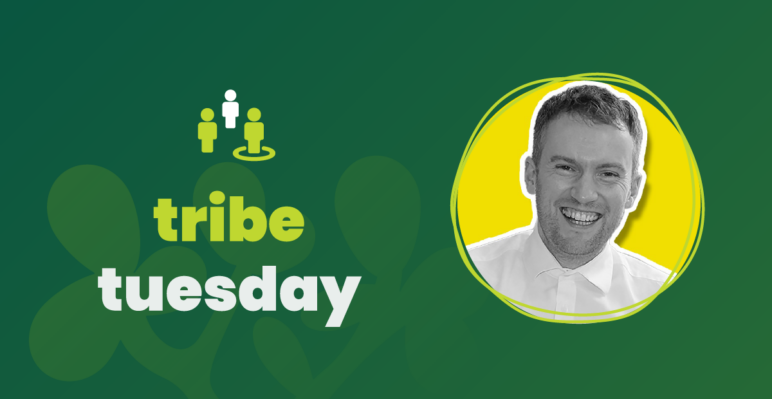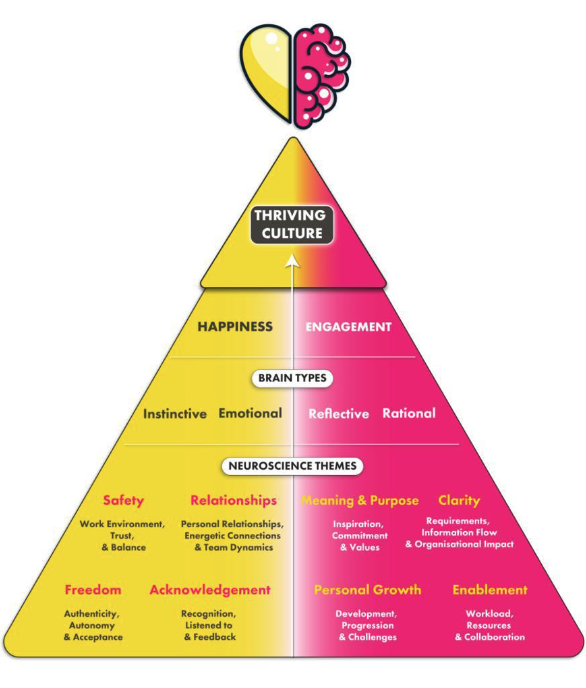Matt Phelan

What a treat it was to kickstart our tribe Tuesday series of interviews with leaders by talking to Matt Phelan, Co-Founder of The Happiness Index and author of Freedom To Be Happy. With a background in marketing he became interested in work culture and what makes people tick. A thoughtful and curious man interested in understanding human beings through the lens of happiness, something we universally strive for, he has taken a data led approach to measure and understand it to create better work cultures throughout the world. His top two tips are to practise happiness every day and understand that happiness is a team sport, we derive it from our connections to others.
What is the book (or books) you’ve given most as a gift, and why? Or what are one to three books that have greatly influenced your life?
The Anti-Racist Organisation by Shereen Daniels. Is the most recent book I have been recommending. I challenge any white person in a leadership role not to learn and change their behaviour after reading this book. It’s aimed at white leaders, and if you are one it will make you feel uncomfortable, but that is the point of it. It’s a good starting point to dismantle systemic racism in an organisation.
Meditations by Marcus Aurelius. A book written by a Roman Emperor from AD 171-175 (setting forth his ideas on Stoic philosophy). Apart from the wisdom it contains, it reminds me that whoever we are in life, we’re all facing the same problems of the human condition.
In terms of the actual wisdom, he (and stoicism) reminds us to focus on what we can control and not to worry about that, that we can’t. It also gives me a different take on meditation. Rather than the traditional Yogic understanding (which I have never found works for me), there are many ways to meditate. I see meditation as a time for your body and brain to catch up with each other. For everybody it could be different, a walk in the woods with their dog for example. For Marcus Aurelius it was writing his thoughts. For me, it’s journalling to organise mine.
The 4-Hour Work Week by Tim Ferris. There is some rubbish in there, but the concept of how to use your time more effectively, to give you what you want, is brilliant and it causes me to think about that in all that I do..
I actually haven’t chosen to work less, as I love my work – I like to put a shift in. But I enjoy the flexibility I have given myself. I don’t actually see work and life as different or separate. I take my kids to work, I want them to understand it and be proud of what I’m doing – promoting happiness in the world.
What purchase of £100 or less has most positively impacted your life in the last six months (or in recent memory)? (Brand and model, where you found it?)
My kitten.
I never thought pre-pandemic that having a pet was possible but everything’s changed for me now. I work from home a lot, usually at least three days a week and therefore I can take care of a pet. It’s nice and comforting to have an animal in the house. I’m actually surprised by how much pleasure it brings me. I can see myself having a dog one day.
How has a failure, or apparent failure, set you up for later success? Do you have a “favourite failure” of yours?
I fail literally every day. There are so many failures that I don’t know where to start.
I guess something that took me a long time to learn, that is always valuable to me, is the understanding that every person is different. We all too often assume people want the same thing as us, but they don’t and if you don’t recognise that and act on it, it leads to problems.
I’ve recently come to the decision to refer to myself as an “employer”, as opposed to an “entrepreneur” or “leader”. I think the notion of an employer is one that obviously comes with a set of responsibilities to the people you employ. You have to find a set of values that have to work for everyone (that includes our investors too – we don’t want growth at all costs and we have had to make that clear to them before they committed).
If you could have a gigantic billboard anywhere with anything on it —metaphorically speaking, getting a message out to millions or billions — what would it say and why? It could be a few words or a paragraph. (If helpful, it can be someone else’s quote: Are there any quotes you think of often or live your life by?)
Freedom to be human.
It’s our strapline. It’s about people having their needs met. It’s what The Happiness Index is focused on.
It can sound wishy washy, but it’s actually a data-driven human statement – the product of scientific rigour (summarised in the image below).

It’s easiest to think about it as a triangle, but it’s not really a hierarchy. All the needs are in fact interconnected, Think of it like the water cycle, a feedback loop. We need all of them to thrive.
What is one of the best or most worthwhile investments you’ve ever made? (Could be an investment of money, time, energy, etc.)
Taking time to meet people, (either for a coffee or online) often peers on a similar journey.
I’m always learning from it. It’s hard to think of specific realisations I’ve had as a result, but I think that’s because they happen all of the time.
I meet four new people a week. I call them my Meeting 0’s. Generally, I’m introduced by somebody to the person, and the point of the meeting is to have no agenda, to have a chat, for me to ask questions and to learn.
I would say I’m an introvert by nature, but I’ve learned the skills of how to have a conversation and although I need to have my time alone to recharge, I get a great deal from talking to others. It’s good for introverts and extroverts.
What is an unusual habit or an absurd thing that you love?
I have loads of them. This one might be a bit boring actually – I have to go for a run once a day.
After the school run, I’ll do a 10 to 15 minute run back home. I do it for my brain, it keeps me calm and orders my mind. If I don’t do it, I get agitated and I’m not the best version of myself.
When I hired a coach, the first thing he told me was that the most important thing is to listen to my body, to invest my time in what makes me able to live my life in the best way.
So I did and I realised I have to move, I can’t just be sitting all day.
In the last five years, what new belief, behaviour, or habit has most improved your life?
I gave up alcohol.
When I was younger I was shy and I inherited drinking alcohol from society as a remedy to that in social situations.
Later on in life, I realised it had simply become a habit. I was playing football on a Tuesday night and one week someone asked if I fancied a pint after the game. I realised I couldn’t otherwise I would have drunk every night in that particular week.
It’s surprisingly easy for that to happen – living and working in central London, with drinks after work, with clients, and socially.
When I had my daughter, something had to go, and that something wasn’t going to be my work or my relationship with my wife or my child. Drinking alcohol is like taking out a happiness loan. You are borrowing happiness from your future, but the cost is too great. As a parent, I simply don’t have space for it.
Being data led, I decided to measure my happiness before and afterwards and I can honestly say that I know I’m happier now.
It wasn’t easy, it takes 90 days to kick a habit, but actually it isn’t just about you. Saying you are cutting down doesn’t work, because others put you under pressure to drink. So, you have to rebrand yourself and it’s a big change for your friends and family, too. I would say it takes more like a couple of years for others to accept that that is who you are. A person that doesn’t drink. Once that happens it’s easy.
What advice would you give to a smart, driven student about to enter the “real world”? What advice should they ignore?”
My advice is to meet with people and learn. There is always something to be gained by getting an outside perspective. Make the time for it.
Also, don’t listen to anyone who tells you that your generation doesn’t work hard and is lazy. There’s no data to support that, it’s just a narrative that keeps reappearing. It seems to be the cycle of society (it’s happened for generations), or perhaps simply the pervasive idea that the past is always somehow better than the present.
What I see are students working several jobs whilst supporting their education, being told they are lazy by a generation that had full grants.
At the happiness index, we don’t give any opinion or advice, we just share the data with our clients. However, sometimes with the hat of just another CEO on, I can do that and on occasion this same ‘wisdom’ comes up and it is something I find myself railing against.
If you do want people to work hard then you have to treat them right. That is not something they need to work on, it’s their employers that do.
